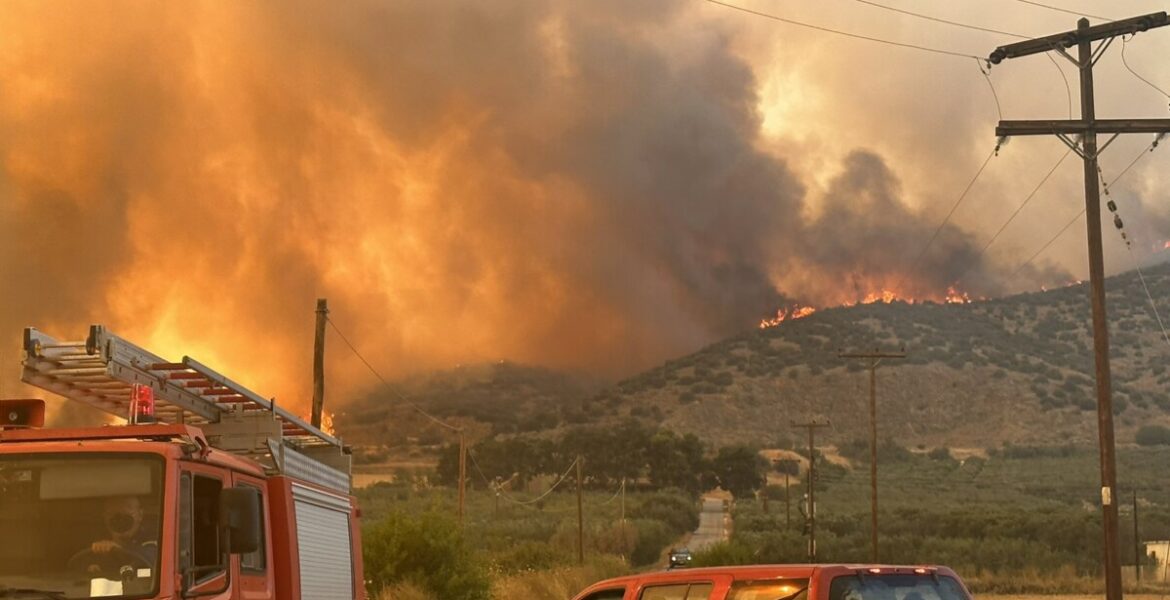A very high fire risk (risk category 4) has been forecast for Tuesday in nine regions of Greece, according to the Fire Danger Forecast Map issued by the General Secretariat for Civil Protection of the Climate Crisis and Civil Protection Ministry.
The regions with high fire danger include Attica, Central Greece (especially Evia, Viotia, Fthiotida), Thessaly (Magnesia, Sporades), Peloponnese (Messinia), Western Greece (Achaia, Ilia), Ionian Islands, Central Macedonia, Eastern Macedonia-Thrace and North Aegean.
Meanwhile, tourists at a seaside hotel on the Greek island of Rhodes snatched up pails of pool water and damp towels as flames approached, rushing to help staffers and locals extinguish one of the wildfires threatening Mediterranean locales during recent heat waves.
The quick team effort meant that “by the time the fire brigade came, most of the fire actually was dealt with,” said Elena Korosteleva from Britain, who was vacationing at the Lindos Memories hotel.
The next morning, some unsettled guests cut their holiday short — but most stayed on as the resort wasn’t damaged in the small brush fire outside its grounds.
The Greek island known for sparkling beaches and ancient sites is nursing its wounds after 11 days of devastating wildfires in July.
After thousands of people were evacuated during the height of travel season, Rhodes is weighing how the crisis will affect its vital tourism sector, which fuels most of its economy and some 20% of Greece’s.
It’s the same for other Mediterranean destinations, like Italy and Spain, where the tourism sector also is being hit by heat waves and wildfires. Greece, Italy, Algeria and Tunisia combined lost more than 1,350 square kilometres (520 square miles) to blazes that affected 120,000 people in late July, according to European Union estimates. And Greece is expecting even more extreme heat in the coming days.
The mayor of Villardeciervos village, in part of northwestern Spain ravaged by fires last summer, said hikers are still coming.
“Tourism is bound to suffer a bit in the next few years, (whether) we like it or not,” Rosa María López said. “On the hiking trails, there are no trees, and it is very sad to see. … But this area is still highly valued by tourists in spite of everything. We will have to adapt.”
Fires have chased away tourists in hard-hit parts of Greece and Italy. Rhodes saw mass cancellations of flights and the trend is similar in Sicily, said Olivier Ponti, vice president of insights at ForwardKeys, a travel data company with access to airline industry ticketing data.
While travel to Greece overall has not been hit too hard, Italy isn’t as lucky. Wildfires “have caused a slowdown in bookings for many Italian destinations, even places not close to the fires,” he said, noting a drop for Rome in the last week of July.
Even without the flames, summer heat intensified by climate change can be a turnoff for travelers.
READ MORE: Evros: The image of a firefighter sleeping exhausted after battling the flames.


